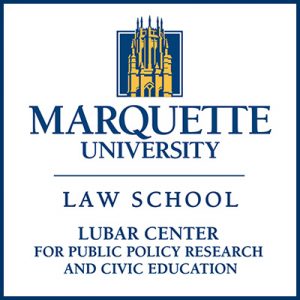This blog post continues the focus of the Law School’s Lubar Center on redistricting.
GOP Appeal in Wisconsin Redistricting Case Could Have Far-reaching Impact—If U.S. Supreme Court Takes It Up
This blog post continues the focus of the Law School’s Lubar Center on redistricting.
 A Republican appeal of the Wisconsin Supreme Court’s legislative redistricting decision earlier this month could have national significance for the federal Voting Rights Act, according to a Marquette University law professor. To that extent, at least, others agree.
A Republican appeal of the Wisconsin Supreme Court’s legislative redistricting decision earlier this month could have national significance for the federal Voting Rights Act, according to a Marquette University law professor. To that extent, at least, others agree.
If the U.S. Supreme Court rules in favor of GOP state lawmakers, the federal justices could allow so-called “race-neutral” redistricting nationwide, says Marquette Professor Atiba Ellis, who has written about the landmark 1965 civil rights law. Combined with previous high court decisions reducing the strength of other parts of the Voting Rights Act, such a ruling would amount to “erasing the efforts of Reconstruction” and going back to a time before the 15th Amendment to the U.S. Constitution extended voting rights to people of color, Ellis fears.
“That’s my worst-case scenario,” he says.
Not all agree, of course, and much is uncertain or debatable, even the timing: The U.S. Supreme Court might hold off on a decision until after the fall elections, allowing a map drawn by Democratic Gov. Tony Evers and approved by the state supreme court to be used for those contests, says Robert Yablon, associate professor of law at the University of Wisconsin.
Or the justices might refuse to take up the appeal at all, says Mel Barnes, an attorney at Law Forward, the legal organization that is representing three voting rights groups in the case.
